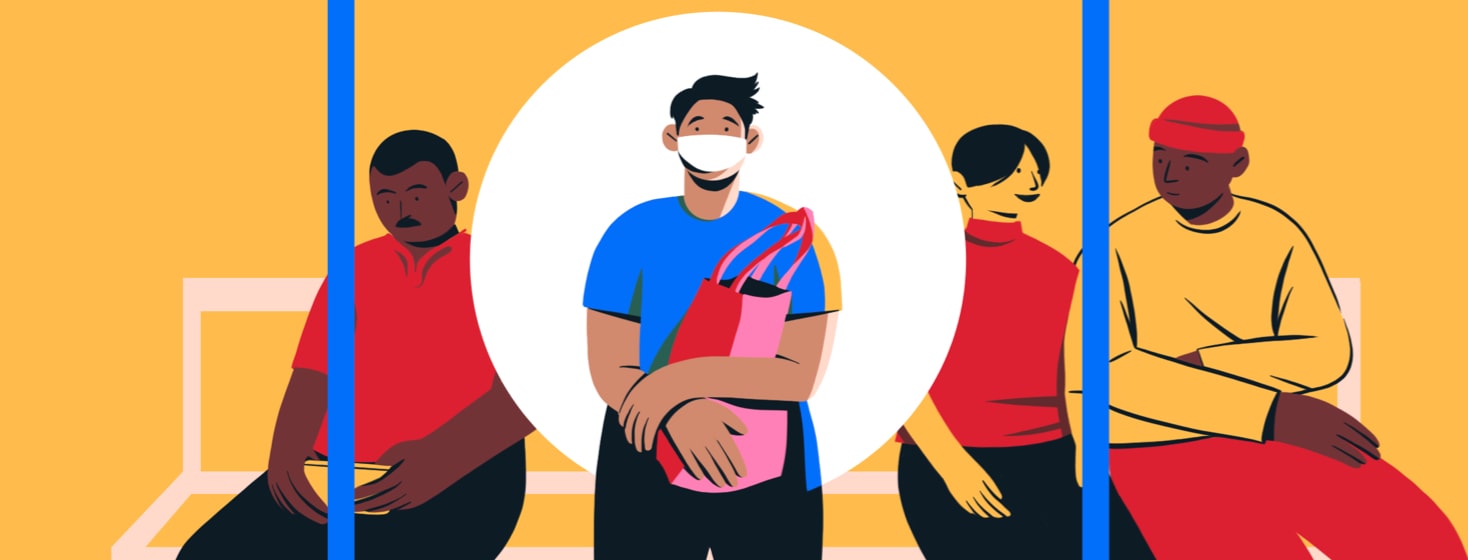Being Immunocompromised in a Non-Immunocompromised World
To be clear: people who aren’t immunocompromised have a lot to say about people who are immunocompromised. And a lot of times, we aren’t even taken into consideration in the choices, laws, bills, and more that profoundly affect our lives. Why is this the case? Why does it have to be this way? I’ve been thinking a lot lately about how to answer these questions, and I want to provide some musings here.
I did not choose to have RA
Certainly, frameworks of ableism enter in here, as that framework situates individuals with disabilities as the cause of their disability; the burden of responsibility falls on the immunocompromised person in this instance. I didn’t choose to have RA, I didn’t want this to happen to me, nor did I have any control over this happening to me. How can I carry that responsibility when this shouldn’t have happened to me in the first place?
Feeling powerless with my weakened immune system
It’s not just loneliness that demarcates being immunocompromised; your body is physically different than what gets pushed to us as the ideal “healthy” body. You feel fatigued almost every day, your body exists in pain, and you feel powerless in many cases against it—even when you have medication that helps your condition along. Even the medication sometimes causes you to feel more side effects and pain. I know that is the case with me and Humira, where for a few days after a Humira shot I basically have to be in bed for at least a day in order to recover. In essence, when you have a compromised immune system, your whole essence and your corporeality is deemed “other,” something different, something not to be viewed in a positive light.
We need more representation of invisible illnesses
I think people forget that immunocompromised people are all around us, and for those of us with “invisible illnesses,” that reality is all the stronger. Immunocompromised people are here, and we need to be represented further. I believe that sites like RheumatoidArthritis.net help aid that representation, something we need more of in order to have a fuller understanding of what having a disability looks like—which will aid in better decision-making that directly impacts not just my life, but any person who is immunocompromised.
The immunocompromised are often "the forgotten"
What else is there to say? I saw a recent article from The New York Times that talked about how the evolving discussion on COVID-19 becoming endemic instead of a pandemic is leaving out millions of Americans who have a weakened immune system. The article states that COVID-19 is becoming “a pandemic of the forgotten."
About seven million Americans have compromised immune systems from cancer treatments, transplants or other medical conditions. For many, it still feels like the worst days of the early pandemic, before vaccines brought some semblance of safety and protection from Covid.
'I’ve spoken to many people who are immunocompromised who never really stopped behaving the way we all behaved in 2020,' said my colleague Amanda Morris, who covers disability. 'They are vaccinated, but may still be unprotected. Some of them haven’t seen their family or friends in two years.'
This is what it’s like to be immunocompromised in a non-immunocompromised world. This is what it is like to feel and be othered by your health.

Join the conversation